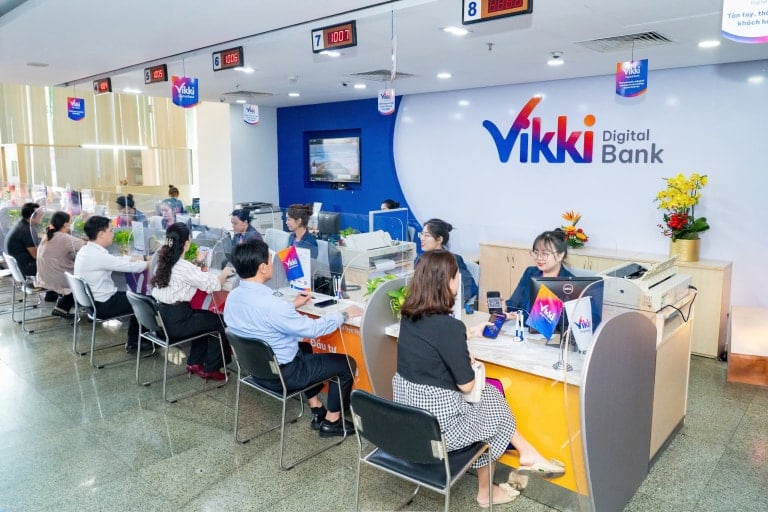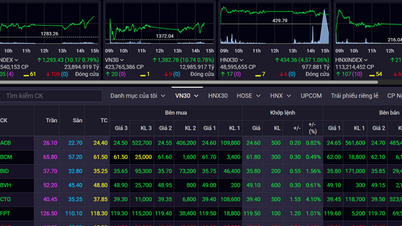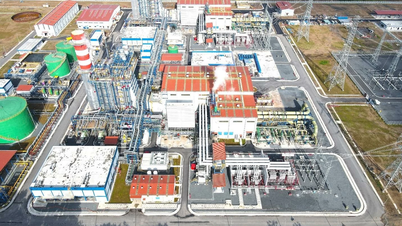In a recent report sent to the National Assembly , the State Bank of Vietnam (SBV) updated the restructuring situation of the credit institution system to date.
Accordingly, the State Bank of Vietnam has issued four compulsory transfer decisions for three compulsory purchase banks and Dong A Bank, marking an important milestone in the process of handling and restructuring banks.
After the compulsory transfer, the stability and safety of the credit institution system continues to be maintained, while the legitimate rights of depositors are protected.
Regarding the case of SCB, the State Bank said that based on the investor's plan to restructure SCB, the State Bank has submitted this plan to the Government .
Specifically, on April 18, 2025, the SBV submitted Document No. 40/TTr-NHNN to the Prime Minister to clarify opinions from members of the Government. "In accordance with the Government's direction in Resolution No. 25/NQ-CP dated April 29, 2025, the SBV is continuing to complete the restructuring plan for SCB and will submit a report to the competent authority as prescribed," said the SBV Governor.
Regarding state-owned commercial banks, the State Bank of Vietnam assessed that in recent times, these banks still play a leading role in the credit institution system in terms of capital scale, assets, capital mobilization and credit.
State-owned commercial banks have actively improved asset quality, controlled credit, handled bad debts through debt collection measures, used risk provisions...

At the same time, these banks have also accelerated the restructuring of their networks, prioritizing service to the agricultural and rural areas under the direction of the Prime Minister. In addition, these banks have also innovated their governance systems, improved operational efficiency and risk management, developed modern banking services and improved financial indicators.
Regarding the joint stock commercial bank (JSC) sector, these banks are also actively implementing the restructuring plan approved by competent authorities.
Joint stock commercial banks are focusing on consolidating finance, management and operations to improve business efficiency and competitiveness. In addition, these banks also pay attention to handling bad debts and controlling credit quality, especially in areas with potential risks.
With foreign credit institutions, the State Bank has strengthened management, inspection and supervision to ensure that these credit institutions operate legally and safely.
The State Bank also encourages foreign credit institutions to participate in supporting the handling of difficulties of domestic credit institutions and applying advanced technologies, bringing new products and services to Vietnam.
Foreign credit institutions operating inefficiently or with high risks are also warned and required to implement safety measures such as increasing charter capital or handling bad debts.
Currently, there are 9 100% foreign-owned banks and 50 foreign bank branches operating in Vietnam. However, over the past 8 years, no new 100% foreign-owned banks have been established in Vietnam.
However, the emergence of new generation digital banks, with the repositioning of brands from mandatory transfer banks such as MBV, Vikki Bank, VCBNeo, is creating opportunities for foreign investors to enter the Vietnamese banking market.
According to the Law on Credit Institutions 2024, digital banks are not subject to foreign ownership restrictions, allowing foreign investors to buy 100% of the capital without having to amend the law. This opens up opportunities for foreign investors in the banking sector in Vietnam.
Source: https://baodaknong.vn/khuyen-khich-ngan-hang-ngoai-ho-tro-to-chuc-tin-dung-trong-nuoc-251801.html




![[Photo] General Secretary To Lam visits exhibition of achievements in private economic development](https://vphoto.vietnam.vn/thumb/1200x675/vietnam/resource/IMAGE/2025/5/18/1809dc545f214a86911fe2d2d0fde2e8)
![[Photo] National conference to disseminate and implement Resolution No. 66-NQ/TW and Resolution No. 68-NQ/TW of the Politburo](https://vphoto.vietnam.vn/thumb/1200x675/vietnam/resource/IMAGE/2025/5/18/adf666b9303a4213998b395b05234b6a)

![[Photo] More than 17,000 candidates participate in the 2025 SPT Competency Assessment Test of Hanoi National University of Education](https://vphoto.vietnam.vn/thumb/1200x675/vietnam/resource/IMAGE/2025/5/17/e538d9a1636c407cbb211b314e6303fd)





















![[Photo] Prime Minister Pham Minh Chinh chairs meeting on science and technology development](https://vphoto.vietnam.vn/thumb/1200x675/vietnam/resource/IMAGE/2025/5/17/ae80dd74c384439789b12013c738a045)






























































Comment (0)